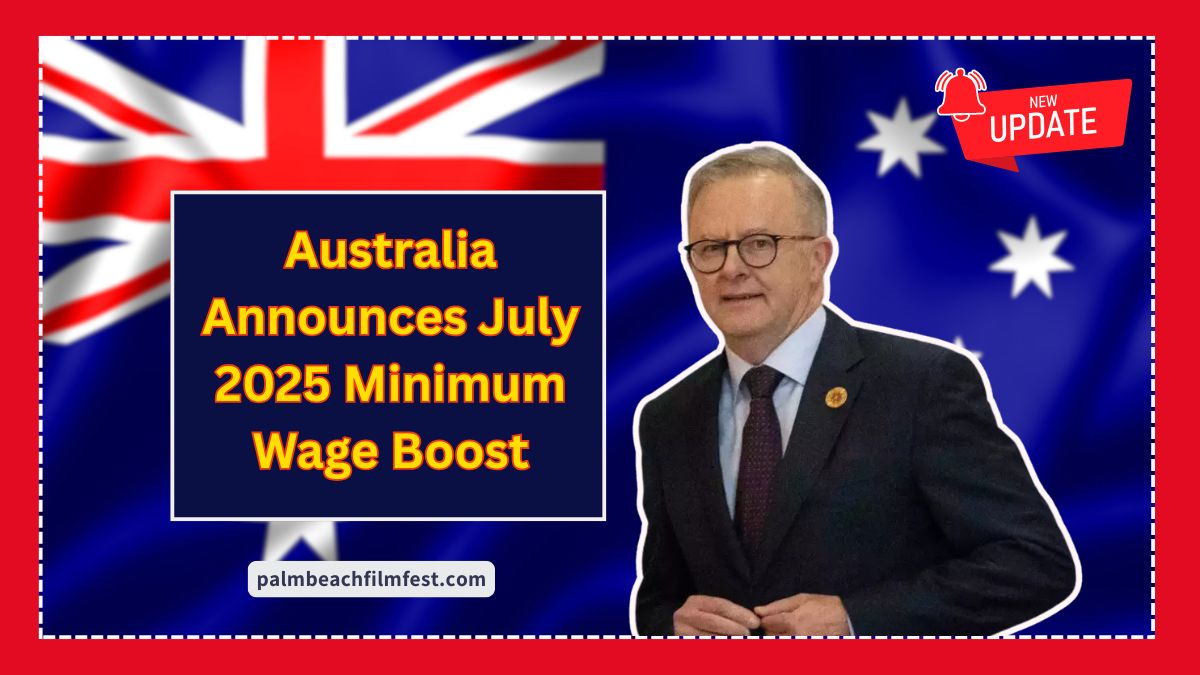Australia Announces July 2025 Minimum Wage Boost – Full Details On New Rates
Australia is preparing for another minimum wage increase in July 2025, impacting over two million workers across key sectors.
This anticipated rise, overseen by the Fair Work Commission, reflects ongoing efforts to combat inflation and ensure fair compensation amid rising living costs.
Here’s a comprehensive look at the projected pay changes, sectors affected, and what both workers and businesses need to know.
Why the Wage Hike Matters
The primary goal of this wage increase is to bridge the income gap for low-paid workers while maintaining economic stability. Despite moderate easing in inflation earlier this year, essentials like housing, transport, and groceries remain costly. The Fair Work Commission aims to raise wages without hurting employment or overburdening small businesses.
Who Will Benefit Most
The wage increase won’t apply uniformly across all industries. Instead, the Commission plans sector-based increases for industries heavily reliant on award wages, such as:
- Healthcare
- Aged Care
- Retail
- Hospitality
- Social Services
This strategy ensures that sectors with the greatest reliance on award-based wages and casual work see proportionate wage growth.
Expected Minimum Wage Rates: July 2025
Here’s a look at the projected new rates for different types of employees:
| Category | Current Hourly Rate (AUD) | Estimated New Rate (AUD) |
|---|---|---|
| Full-Time Adult Employees | 23.23 | 24.40 – 24.75 |
| Casual Employees (with loading) | 29.04 | 30.50 – 30.85 |
| Aged Care Workers | 27.90 | 29.25 – 29.75 |
| Hospitality/Retail Workers | Varies | +1.20 to +1.65 increase |
These estimates reflect a 4.5% to 5.2% increase, in line with 2025’s inflation trends and economic indicators.
Impact on Small Businesses
For small and medium-sized enterprises, this wage increase brings both opportunities and challenges:
- Positive Impact: Increased wages may boost consumer spending.
- Challenges: Businesses may need to adjust staffing, pricing, and supplier contracts to manage rising costs.
- Some experts warn this could lead to a mild inflation bump later in 2025.
Government Support for Employers
To support businesses in implementing these changes, the Australian Government and Fair Work Ombudsman have launched:
- Updated wage calculators
- Digital compliance guides
- Resources to reassess employee classification and contracts
Employers are urged to update payroll systems, notify staff, and review award obligations before the new rates take effect.
What Workers Should Do
Employees, especially casual and part-time workers, are encouraged to:
- Review the upcoming rates
- Compare them to their current wages
- Report discrepancies to the Fair Work Ombudsman
Being proactive can help workers avoid underpayment and enforce their rights with confidence.
A Step Toward Economic Fairness
The 2025 minimum wage reform is part of Australia’s broader effort to align wage policies with economic growth and social equity. While employers may face short-term challenges, the long-term benefits include a more resilient economy and a fairer labor market.
The July 2025 minimum wage increase marks a pivotal moment for Australia’s labor market. It balances the need for fair pay with the broader goals of economic sustainability.
As workers prepare to receive higher wages and businesses adjust their strategies, this reform lays the groundwork for a more equitable and inclusive workforce in the years ahead.
FAQs
What is the new minimum wage in Australia from July 2025?
The minimum wage is expected to rise from AUD 23.23 to between AUD 24.40 and AUD 24.75 per hour for full-time workers. Casuals may earn up to AUD 30.85.
Which sectors will benefit most from the wage increase?
Industries like aged care, healthcare, hospitality, and retail—which rely heavily on award wages—will see the biggest increases.
What should employers do to comply with the new wage laws?
Employers must update payroll systems, adjust employment contracts, and ensure all workers are classified correctly under new award terms.
